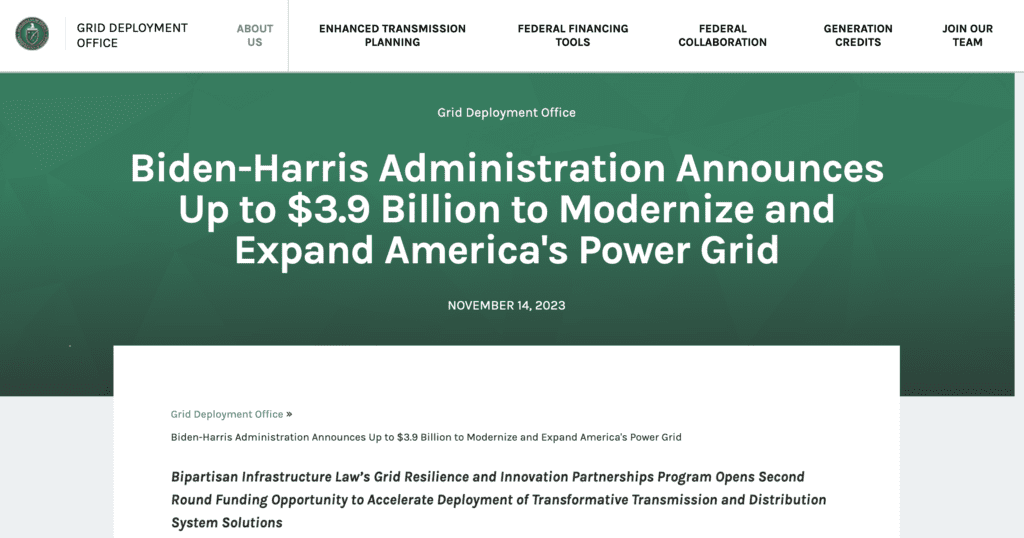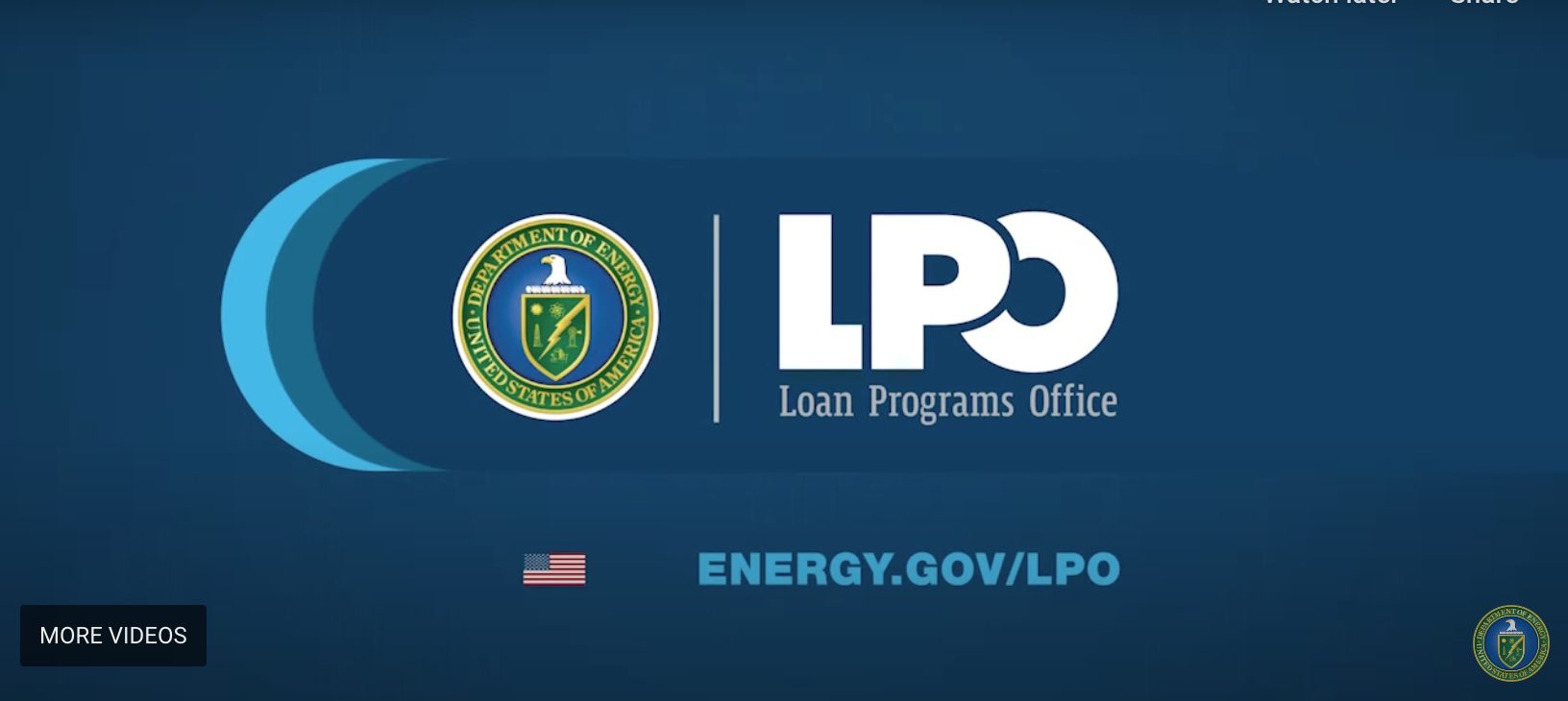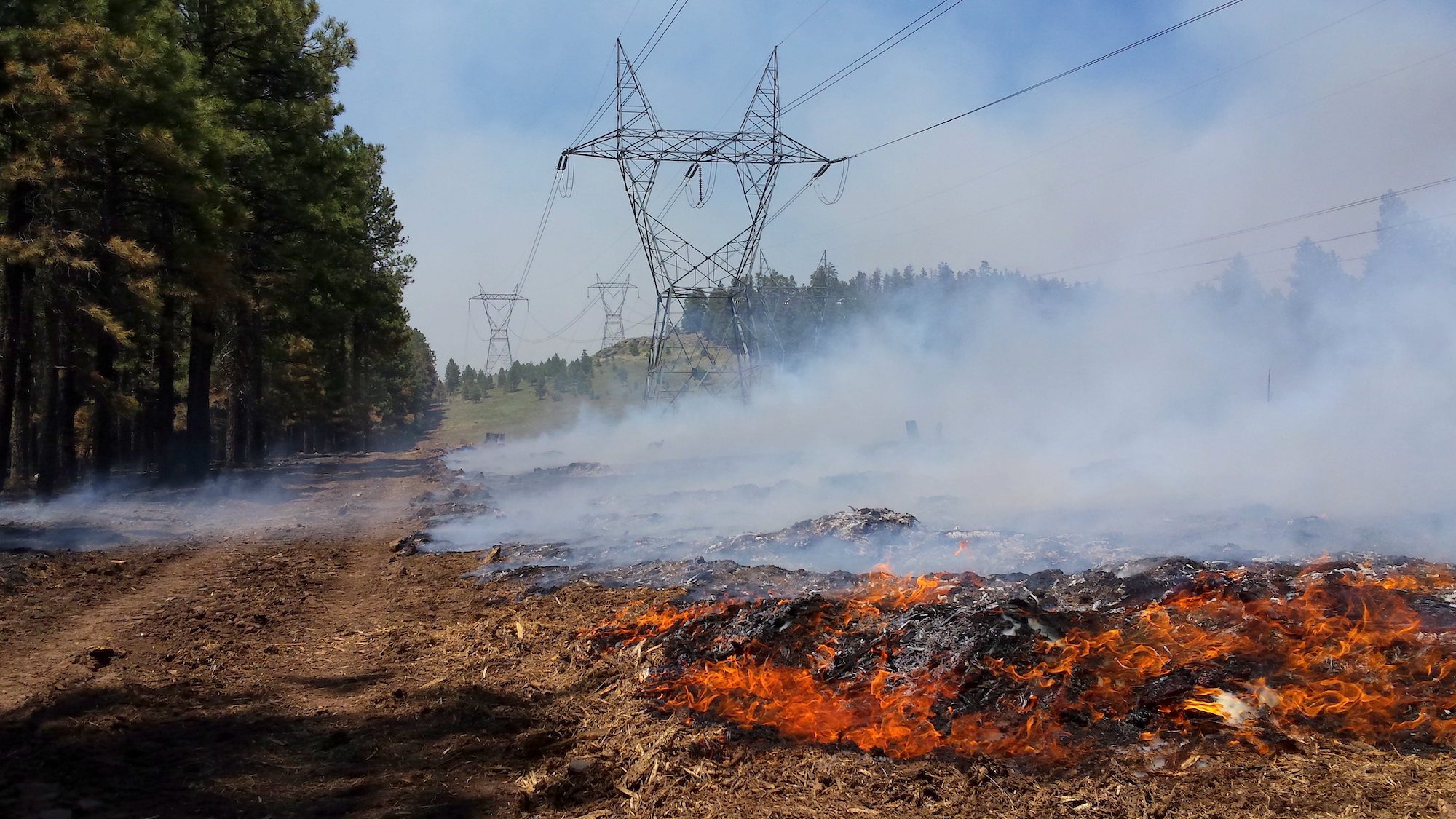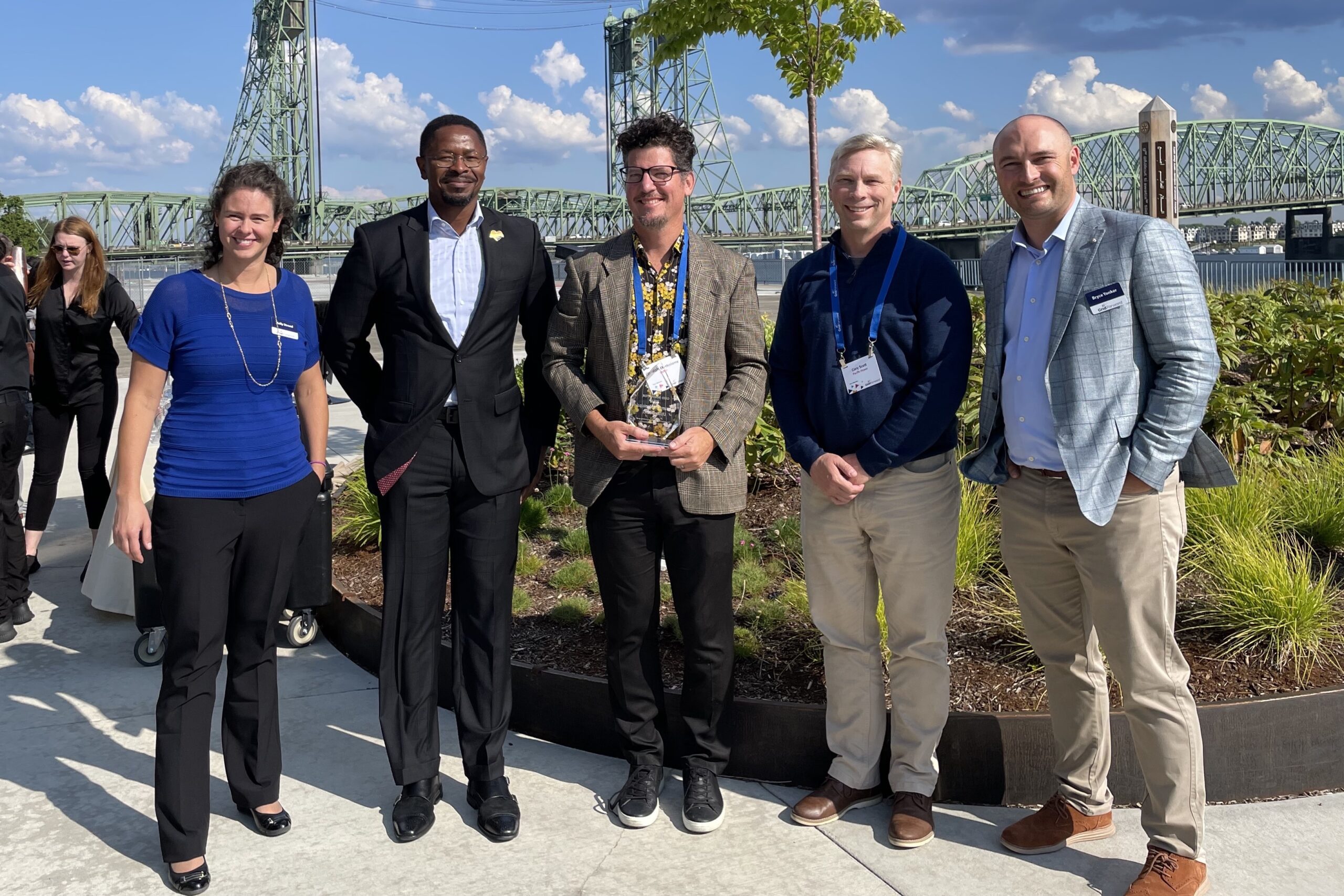The U.S. DOE Grid Deployment Office (GDO) announced the second funding opportunity under the Grid Resilience and Innovation Partnerships (GRIP) Program, with up to $3.9 billion available for projects to enhance grid flexibility and resilience, funded by the Bipartisan Infrastructure Law.

What You Need to Know Now
- Read the announcement here >
- Download and read the Funding Opportunity Announcement (FOA) >
- Register for the DOE webinar Nov 20 >
- Get busy! Concept papers are due 5PM eastern January 12, 2024
Some Details: New Topics, Same Funding Orgs
While we are still digesting and talking about the opportunities in this new round, a few important details popped out that we thought you should know.
Revised focus and new topics for this round
The announcement from the DOE GDO mentions three topic areas:
- Advancing interconnection processes
- Integrated grid communications systems
- Distributed energy resource deployments
Looking deeper into the FOA (pages 6-7) we have found a list of priority topics for this round, which we quote here:
- Projects that cover multiple utility service territories and will evolve and share utility best practices that increase resilience against extreme weather and adapt to the changing energy and technology landscapes.
- Projects that address substation hardening, including the automation and digitization of substations, and/or coordination with upgrades that enable distributed energy resource integration and electrification readiness.
- Projects that propose to construct new transmission infrastructure to resolve a specific and identified contingency condition that the applicant has been unable to resolve using standard investment and planning approaches.
- Projects that significantly increase the transmission capacity of existing rights-of-way using advanced conductors, grid-enhancing technologies, or high-voltage direct current in coordination with investments that enable integration and full utilization of high-capacity corridors.
- Projects that will deploy solutions to increasing the processing of interconnection applications and minimize the queue-related delays for clean energy and electrification loads at both the transmission and distribution levels.
- Projects that in combination with priority investments will foster growth of a highly skilled power sector workforce and minimize workforce constraints associated with power sector innovation.
- Projects that have a significant impact on the transmission system, including projects that leverage advanced transmission technologies and can reduce or remove the existing technical, economic, and regulatory barriers, demonstrate enhanced operational flexibility or capacity, and that enhance reliability to accelerate wide scale transmission expansion and renewable energy interconnection.
- Projects that implement novel and replicable approaches to reducing energy burden and increasing resilience for disadvantaged communities, especially projects that increase access to cheaper generation resources and reduce the impact of infrastructure costs.

Awards are coming from the same programs at about the same number of awards and funding levels (FOA pg 30-31)
Grid Resilience Utility and Industry Grants
- FY24/FY25 – $918 million
- Anticipated number of awards: 10-20
- Anticipated minimum award: $10 million for small utilities, $50 million for all others
- Anticipated maximum award: $100 million, $250 million for exceptions
Smart Grid Grants
- FY24/FY25 – $1,080 million
- Anticipated number of awards: 25-40
- Anticipated minimum award: $10 million
- Anticipated maximum award: $50 million, $100 million and $250 million for exceptions
Grid Innovation Program
- FY24/FY25 – $1,820 million
- Anticipated number of awards: 4-40
- Anticipated minimum award: N/A
- Anticipated maximum award: $250 million, $1000 million for exceptions
More information to come
Grid Forward will continue to review information from the DOE GDO and provide updates to our community and partners. Watch for updates by email and in our newsletter. If you are interested to know more about Grid Forward work supporting regional collaboration on these funding opportunities, contact Bryce.



